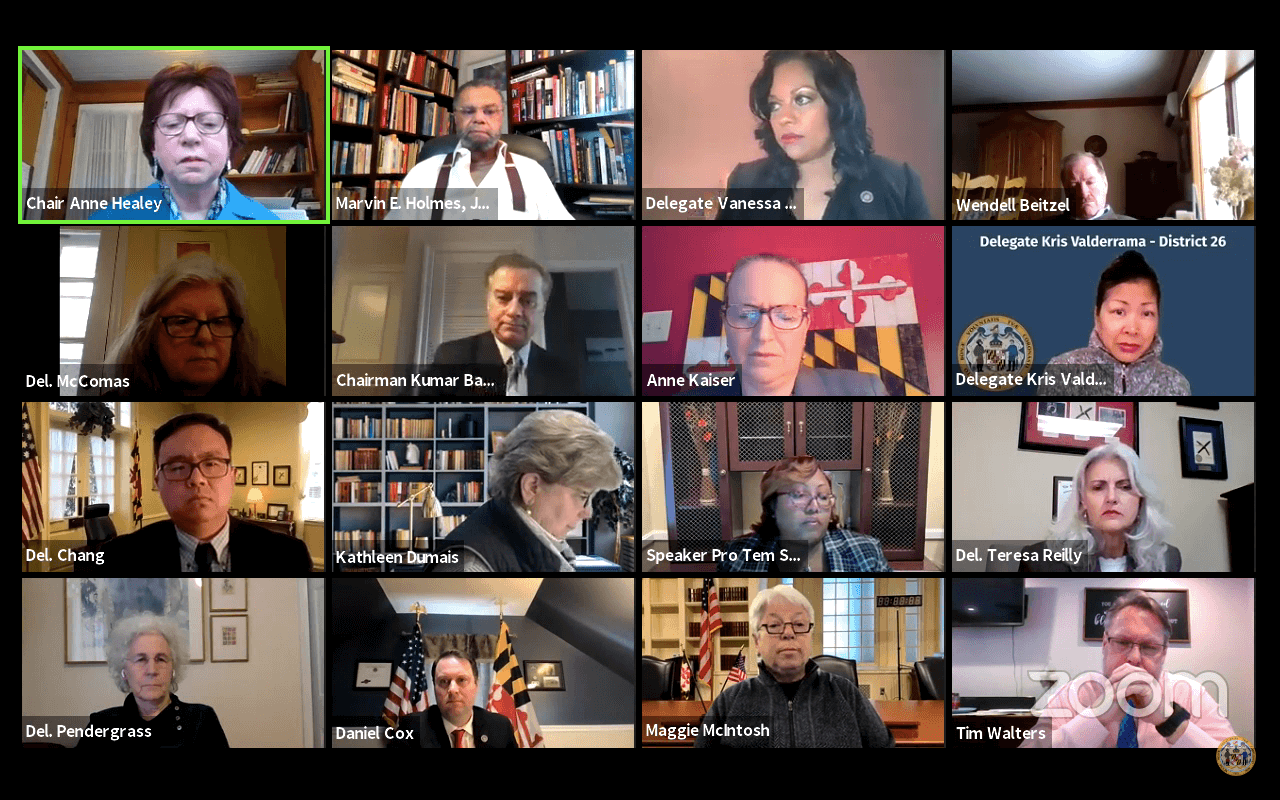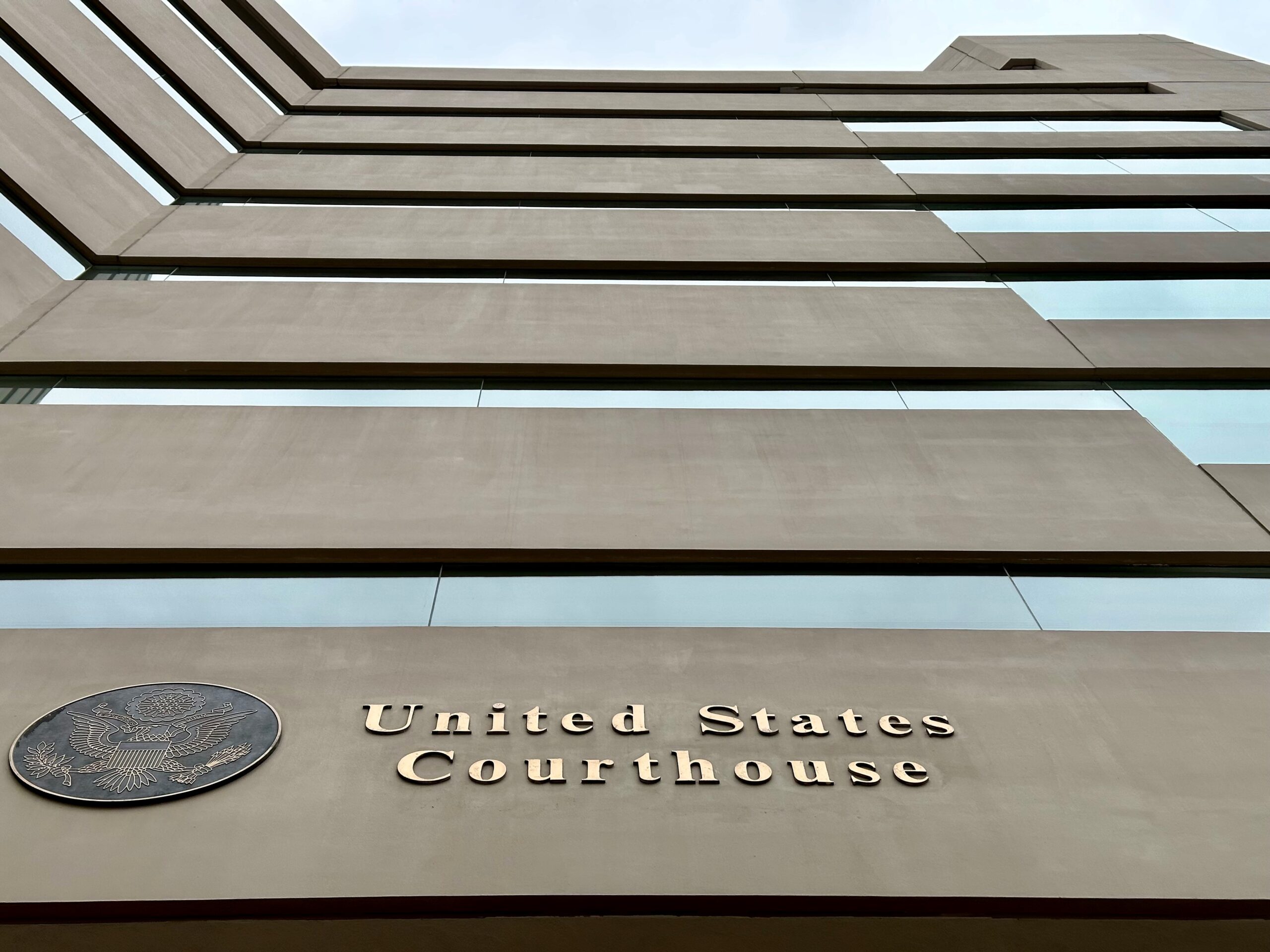Cox Resolution Would End Covid Emergency in Md.

Gov. Lawrence J. Hogan Jr. declared a COVID-19 “state of emergency” nearly a year ago, on March 5, 2020.
Every few weeks since, he has issued a renewal of the original order. The most recent — signed Feb. 19 — was the 13th.
Although infections, hospitalizations and deaths are trending downward, the order Hogan (R) signed last week affirms that “the spread of COVID-19 in the state continues to pose an immediate threat to all Marylanders of extensive loss of life and serious disability.” More than 7,500 Marylanders have died of COVID-19 since March.
A Maryland lawmaker who has a long history of bucking Hogan’s tough stance on the pandemic wants the most recent emergency renewal to be the last.
Del. Daniel L. Cox (R-Frederick) has proposed a resolution, H.J. 2, that would end Maryland’s emergency in its tracks.
In testimony before the House Rules Committee on Monday, Cox said the gubernatorial powers that became available when Hogan signed the order represented “a seizure of all our liberties.”
“You are the representative voice of the people,” Cox told his colleagues. “No one else has more immediate power under the Constitution and the laws than you.”
Tim Walters, a co-chairman of the group Reopen Maryland, told the committee that Hogan’s policy represented “tyranny.”
“Gov. Hogan himself is now screaming to reopen the schools that he himself closed,” Walters said. “His rationale currently is that the science no longer supports keeping the schools closed.”
In an interview with The Daily Record in January, Hogan said “people would have died” were it not for the special powers that were triggered by the formal emergency declaration. The need is particularly acute when the legislature is out of session, he added.
Hogan used particularly strong language to denounce Cox’s proposal.
“The bill to take away or to limit any governor’s power to react and respond to an emergency — I’ve heard a lot of crazy things — but that is one of the dumbest things I’ve ever heard in my life from the legislature,” Hogan told reporter Bryan Sears.
Hogan said the state “wouldn’t get federal assistance if we weren’t in a state of emergency.” But Cox, an attorney, told the House Rules committee that there is no such requirement in federal law.
All that is required, he said, is for the state to send federal funding agencies a letter “detailing the reasons for the major disaster needs and indicating a plan to use those funds to recover from the disaster.”
A legislative analysis of Cox’s bill said the termination of the state of emergency would — according to the state Department of Health — limit the state’s ability to respond to and control the spread of COVID-19.
In particular, it would remove the secretary of health’s authority to permit expanded telehealth provisions, out-of-state licensed health care workers performing health care tasks in Maryland, and expanded scopes of practice for certain licensed health care workers.
Health orders issued by county executives or public health officers would no longer be in effect, including those requiring face coverings and limiting the size of gatherings, analysts added.
Small businesses would “benefit significantly” from the opportunity to operate on a pre-pandemic basis, the analysis concluded.
Cox’s proposal is unlikely to advance, lawmakers said. The Frederick County lawmaker has long opposed Hogan’s coronavirus actions. And he faced calls for his expulsion from the General Assembly after a tweet, sent around 3 p.m. on Jan. 6, calling then-Vice President Pence “a traitor.” The tweet was posted as armed backers of President Trump stormed the building in an attempt to block certification of the 2020 election.
Cox helped organize transportation for a group of Trump supporters but later claimed to be opposed to the violence that ensued.
Rather than constrain a governor’s powers to declare a public health emergency, lawmakers are more likely to support legislation requiring greater and more timely disclosure of emergency procurements, said Sen. Paul G. Pinsky (D-Prince George’s), the chairman of the Education, Health and Environmental Affairs Committee.
There are similar but not identical measures in each chamber, House Bill 1092 and Senate Bill 829, that would require additional safeguards for emergency procurements, among other reforms. House Bill 1003 and Senate Bill 780, sponsored by Pinsky, would require the governor to provide the legislature notice of emergency procurements, and set a schedule for auditing emergency purchases.
“I don’t think anybody wants to put up unnecessary roadblocks during a time of crisis,” Pinsky said. “On the other hand, we don’t want to give a wild card without any checks and balances. It’s abuse of taxpayer money.”
He said that certain purchases — most notably for testing kits purchased from South Korea — were “a fiasco” that could have been stopped had lawmakers known about them in real time. Hogan has repeatedly defended that purchase.
Editor’s Note: This story was updated to include additional information about pending legislation.




 Creative Commons Attribution
Creative Commons Attribution